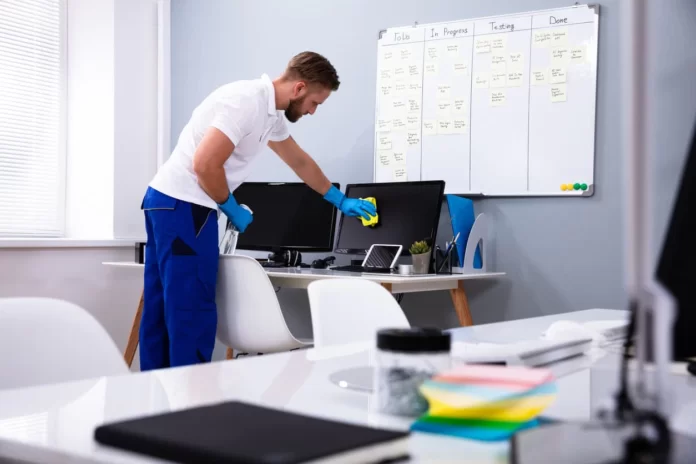Maintaining a clean and organized office environment is more than just about appearances. A tidy workspace directly impacts employee health, productivity, and overall morale. With the increasing awareness of workplace wellness, businesses are now prioritizing proper cleaning routines to reduce germs, minimize sick days, and create a welcoming environment for both staff and visitors.
In busy work environments, particularly in growing business hubs, professional services like office cleaning in Manchester have become a vital part of ensuring consistent cleanliness and hygiene standards. However, even if you hire experts, incorporating daily cleaning habits within the office can significantly enhance workplace health and efficiency.
Why Office Cleaning Matters
A workplace accumulates a variety of contaminants on a daily basis. From dust and allergens to bacteria carried on hands and devices, these unseen particles can lead to health issues if not addressed properly. Common illnesses like colds, flu, and allergies often spread faster in shared office environments, reducing productivity and increasing absenteeism. Regular cleaning is therefore essential not just for aesthetics but also for preventing health risks.
Focus on High-Touch Surfaces
High-touch surfaces such as keyboards, telephones, doorknobs, light switches, and shared office equipment are hotspots for germs. These areas should be disinfected daily to reduce the risk of cross-contamination. Providing employees with sanitizing wipes can encourage them to take responsibility for keeping their personal workstations clean.
Maintain Clean and Fresh Air
Air quality plays a vital role in workplace health. Dust build-up in carpets, upholstery, and air vents can trigger allergies and respiratory issues. Regular vacuuming, air duct cleaning, and the use of air purifiers can help maintain fresh and clean indoor air. Plants also add natural air purification benefits while enhancing office aesthetics.
Encourage Clean Desk Policies
A clutter-free desk not only looks professional but also reduces the accumulation of dust and germs. Encourage staff to clear their desks at the end of the day, dispose of unnecessary papers, and store items in designated spaces. This practice makes it easier for cleaning teams to sanitize surfaces effectively.
Restroom Hygiene is Non-Negotiable
Restrooms are one of the most critical areas to maintain in an office. Daily cleaning with disinfectants, regular replenishment of supplies, and proper ventilation are essential to prevent odors and maintain a healthy environment. Touch-free dispensers and hand dryers can also reduce the spread of bacteria.
Keep Shared Spaces Spotless
Break rooms, kitchens, and conference rooms are commonly shared spaces where cleanliness is often overlooked. Wipe down tables, chairs, and appliances daily, and ensure that the refrigerator is cleared of expired food regularly. Encouraging employees to clean up after themselves also helps maintain these areas in better condition.
Proper Waste Management
Overflowing bins can quickly become breeding grounds for bacteria and attract pests. Ensure that waste is disposed of daily and that recycling is encouraged where possible. Lining bins with appropriate bags and using lids can further improve hygiene.
Regular Deep Cleaning
In addition to daily cleaning, scheduling regular deep cleaning is crucial. This includes carpet shampooing, window washing, polishing hard floors, and sanitizing upholstery. Deep cleaning eliminates built-up grime that may not be visible but can impact overall office health.
Promote Employee Awareness
Cleanliness should be a shared responsibility. Organizing workshops or simple awareness sessions can remind employees about the importance of hygiene and cleanliness. Encouraging frequent handwashing and providing hand sanitizers throughout the office are small steps that make a big difference.
Final Thoughts
A healthy workplace starts with cleanliness. Implementing structured cleaning routines, focusing on high-risk areas, and engaging employees in maintaining hygiene can significantly reduce health risks and improve productivity. Whether handled internally or with professional help, consistent cleaning practices are essential for sustaining a healthy, thriving office environment.








